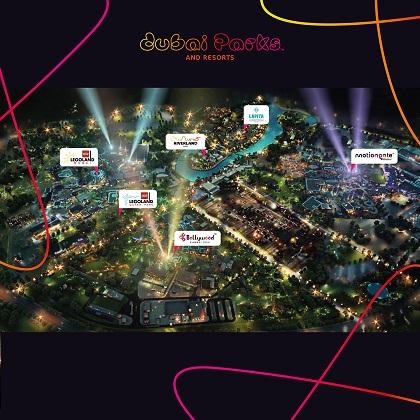
The second edition of the Theme Parks & Entertainment Development Forum Middle East took place from May 22-25 reinforcing the significance of theme parks within the leisure and amusement space in the region and beyond.
There is a child in every one of us that likes to get on to the giant Ferris wheel, the superfast rollercoaster or the water slide. The excitement goes up a notch when visiting theme parks like Disneyland in Orlando, Paris and Hong Kong or Dreamworld in Australia. Closer home, there are several such exciting destinations – Ferrari World for those craving speed and thrill and Yas Waterworld for those who like water. You can also play with dolphins at the Dolphin Bay or chill on Ski Dubai, the indoor ski slope in the heart of the desert.
More excitement is being added to the regional theme park space with upcoming launches like IMG Worlds of Adventure, Dubai Parks and Resorts, Fox-branded Theme Park and Warner Bros World Abu Dhabi in the UAE; Angry Bird Theme Park in Qatar; and Majarat Oman in the Sultanate.
In Dubai, theme parks are expected to generate around $5 billion in revenues by 2020, attracting over 25 million tourists. The emirate holds a lion’s share of Middle East theme park projects, closely followed by Abu Dhabi and Qatar.
“Theme parks are firmly on the Middle East agenda, with nearly 45 operational theme parks and many more entertainment developments underway or in planning, which marks a new era for the region’s leisure and entertainment industry,” says Basma Dawwas, conference director, IQPC – the organiser of the Theme Parks & Entertainment Development Forum Middle East.
Sharing some of the significant trends emerging from the second edition of the Theme Parks & Entertainment Development Forum Middle East, she observes, “Theme park operators in the region discussed the importance of the guest experience, particularly queue time. Regional theme parks are looking to adopt new ways of enhancing the queue experience and discussed global examples from Six Flags and Universal Studios on how they introduced premium or express passes for those willing to pay more, while Disney World in Florida positioned entertainers along queues to help make the wait experience less arduous.”
Taking the cue, Yas Waterworld in Abu Dhabi now offers express or VIP passes, while IMG World of Adventures, scheduled to open in Dubai in August this year, is seeking to integrate the queue element into the overall experience.
Dubai Parks and Resorts, on the other hand, has partnered with Etisalat to create a ‘smart’ integrated theme park, due to open in October. The two firms said they planned to use technology such as mobile devices, web portals, radio-frequency identification wristbands, smart kiosks and digital signage to help improve the guest experience.
Another crucial element in theme parks is the F&B options. That’s a big pull factor. Once guests are in the park, they easily spend at least half a day, which means they need to eat and drink. Similarly, branded retail outlets add yet another layer of excitement. People want to take back memories of their theme park visit, be it a photograph or some related merchandise.
“With two large integrated theme parks to be unveiled this year in the UAE – IMG World of Adventure and Dubai Parks & Resorts – competition will intensify, making it crucial for new and existing parks to differentiate their destinations through innovative designs, planning and guest attraction strategies,” she concludes.
Notifications